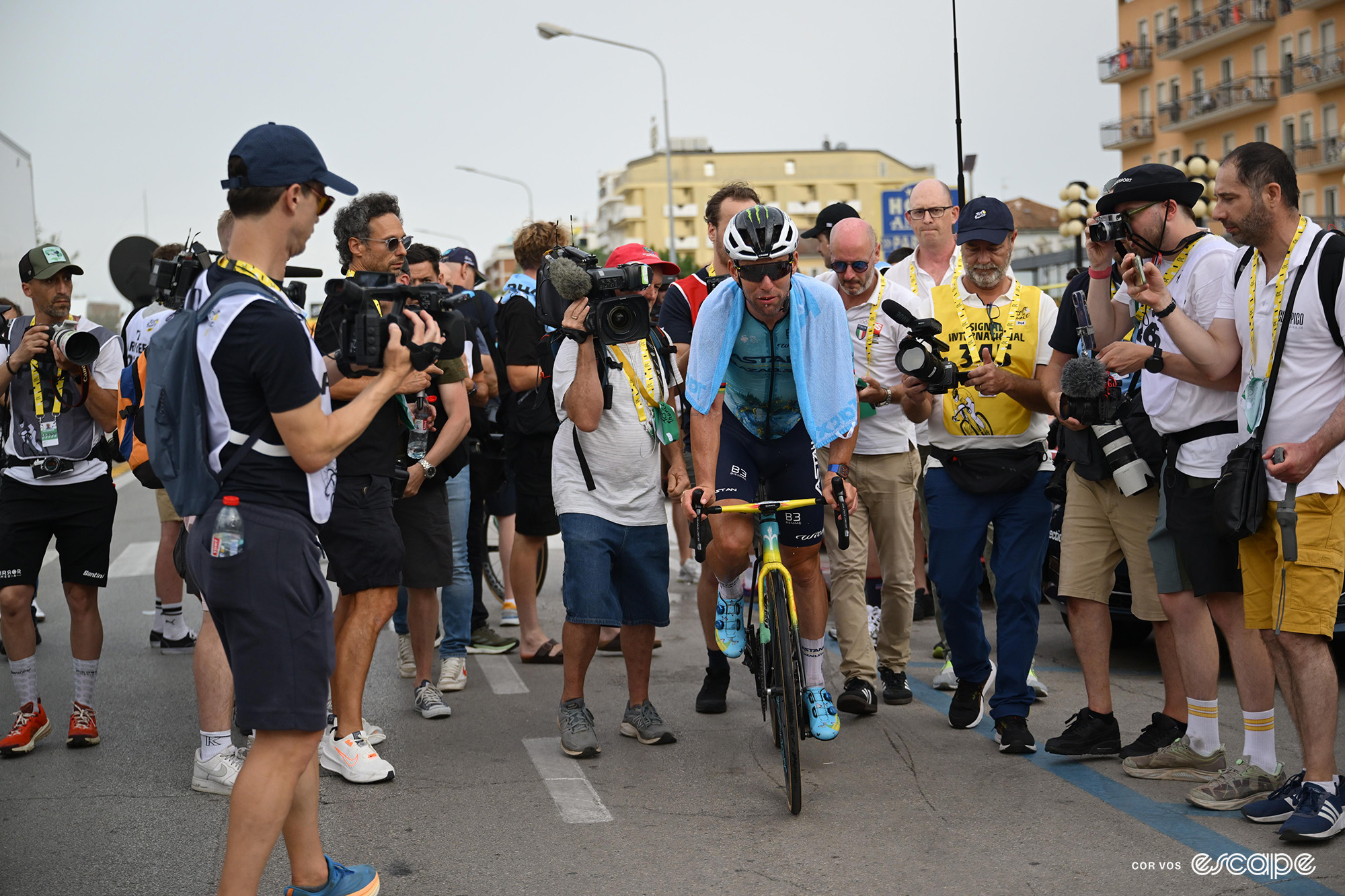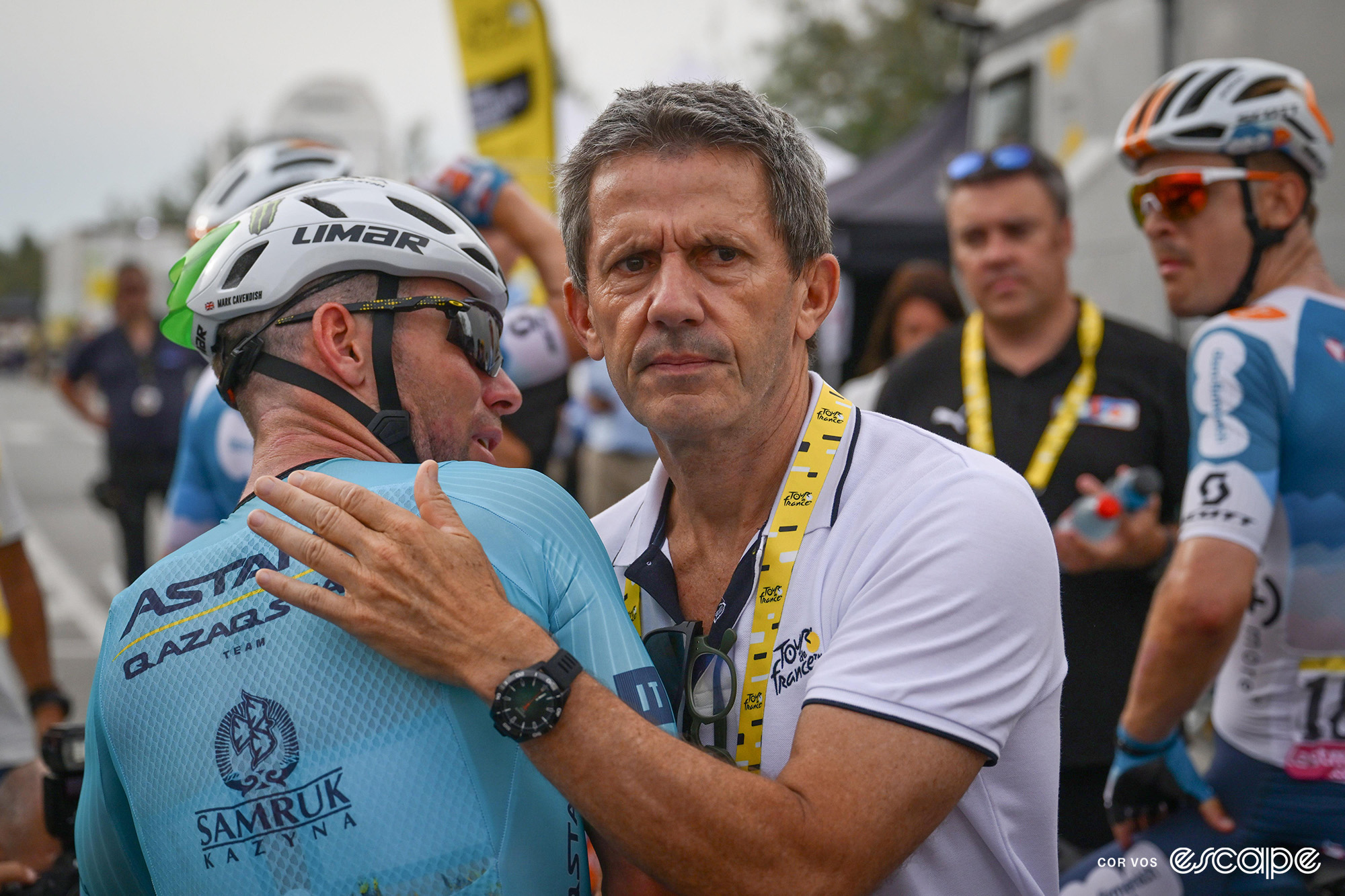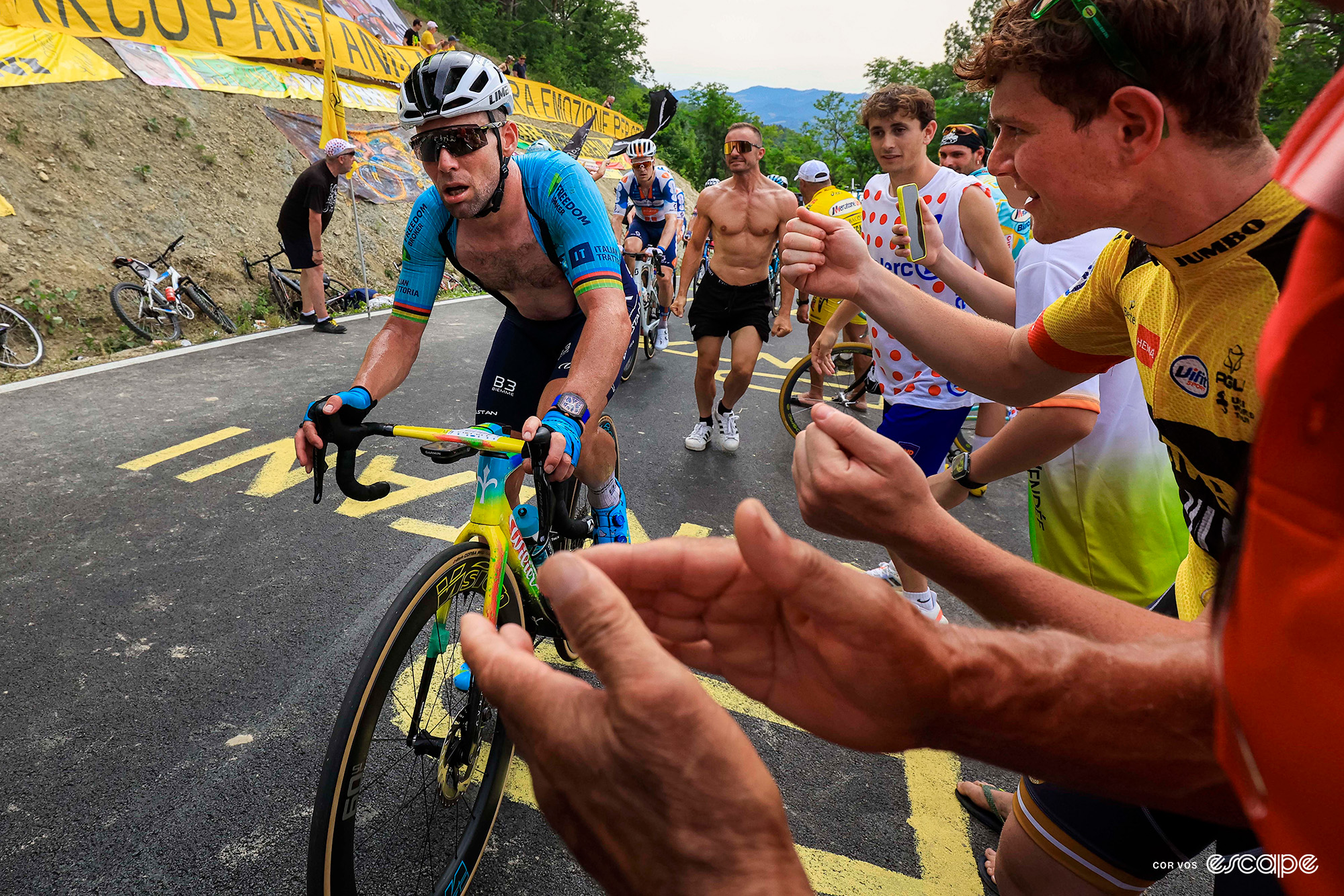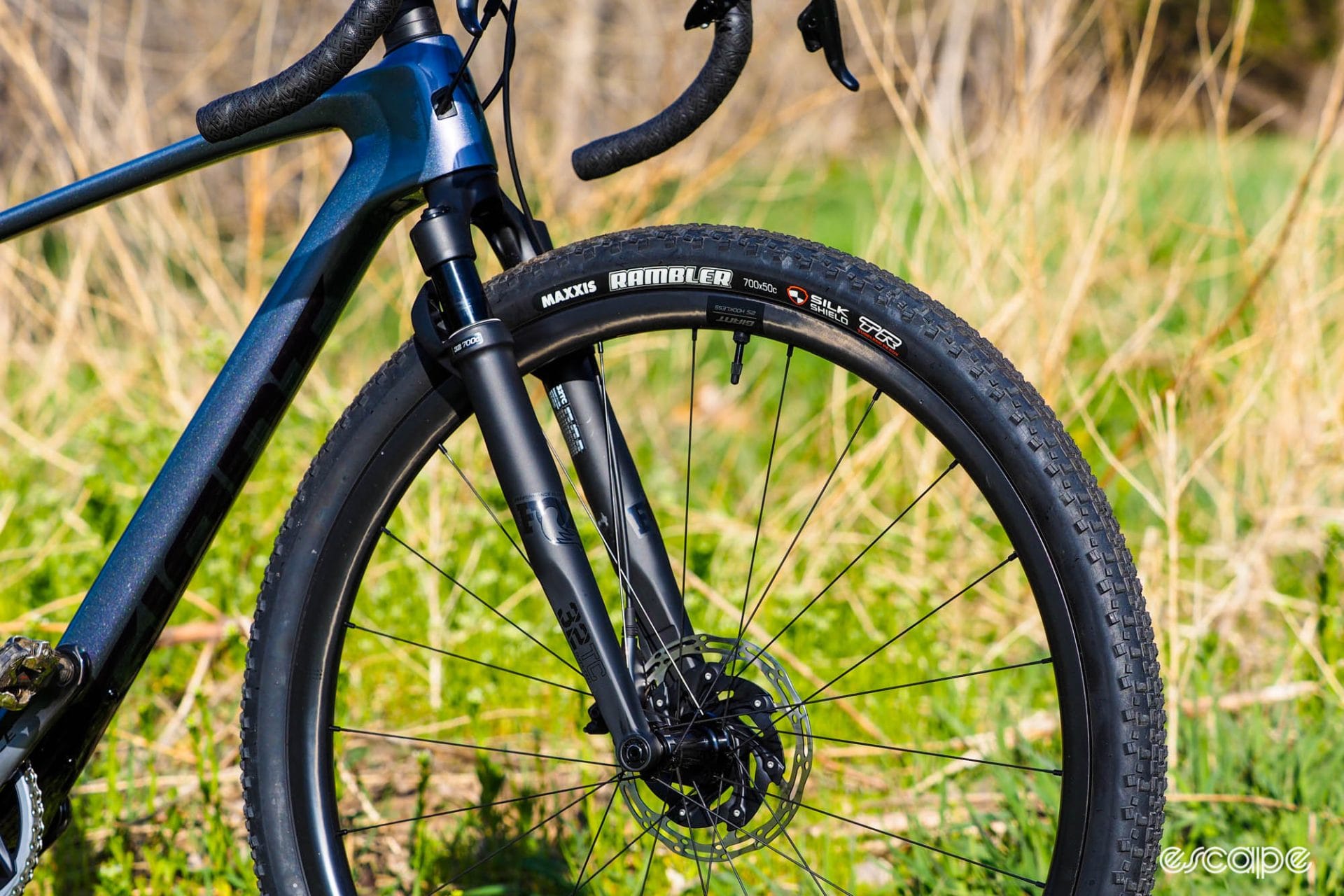Handing Cav a bucket in Rimini, IT — Fifteen minutes after the finish. Reporters are standing outside the Astana Qazaqstan bus and team boss Alexandre Vinokourov doesn't want to talk, saying he doesn't know what's happening until Mark Cavendish arrives.
The Manx sprinter, here at 39 years old for another final go at trying to win a record-breaking 35th stage, was dropped 45 km into the 2024 Tour de France on the first climb of the race, vomiting soon afterwards. A time gap graphic, as well as a new picture-in-picture box underneath said gap, kept us in the loop as to his travails as the distance between the sprinter's growing grupetto and the front of the race yawned out, and the 206 km to Rimini ticked by.
Thirty minutes after the finish. Word goes round that Cavendish is going to stop straight after the finish line to be attended to by medical staff. Back down towards the finish line, away from the team buses, an Astana soigneur is giving an employee of a television broadcaster grief for something one of his colleagues said on the commentary that day, presumably about either Cavendish or the team. The television employee remonstrates, saying he's been in the car on the route all day, so he neither knows nor is responsible for whatever slight was dealt out.
The podium music begins to sound, and then, as we continue to wait, the podium men and women, dressed in yellow, green, and polka dots depending on the jersey they present to its winner, walk past us, the day's ceremonies already wrapped.
Still, everyone waits for Cavendish.
Suddenly, whistling announces his imminent arrival. The teammates who've kept him company all day, Yevgeniy Fedorov, Davide Ballerini, Cees Bol and Michael Mørkøv roll in. Ballerini is given a cold towel which he drapes around his neck, Mørkøv orders a can of Coke, which the soigneur cracks open for him to save the Dane the trouble.
Behind, people start running, and in between them is a freewheeling Cavendish, smiling as fans yell his name. As he approaches the awaiting scrum, the smile fades slightly, maybe more of a grimace. He comes to a stop and holds out both hands, wanting ... well, whatever it is they have to give him. A cold towel around the neck. Water to pour in his mouth and over his head. He shakes the liquid off, wipes his nose, downs a small tube of recovery-something-or-other, gives Mørkøv a pat on the back as his leadout man rides back towards the bus. And then Cavendish is off himself, the scrum following in a manic procession. The court following its king who finished in second-to-last place among the 176 starters (Cavendish's teammate Michele Gazzoli was a DNF, and finisher 175 on the day, Fabio Jakobsen, passes by at some point completely unnoticed).

Back at the bus, we finally hear from the man whose Tour de France story only gets bigger with each pedal stroke.
"It was the heat," Cavendish explains. "I think a lot of people were feeling it. Look, we know what we're doing. It's not easy, like I always say. If you've got my body type, don't start cycling because those days are gone. But we know what we're doing." A glint of humour that shows everything is actually fine.
"It doesn't mean it's easy, we're not riding around talking. That was so hard, but we had a plan and we stuck to it. Okay, didn't go exactly like ... we'd have liked to stay one more climb with the peloton but I was seeing stars it was so hot. But we're happy we made it through, we're okay. And yeah, on to stage 2."
Cavendish explains his finishing time of plus-39:12 to stage winner Romain Bardet wasn't him on the limit, but a conservative approach to a tough day and a three-week stage race where recovery needs to be managed carefully. But, you can sense a further bemoaning of not just body types of bygone eras, but of the way Grand Tours are designed and raced these days. To the hilt, in the service of GC battles rather than sprinting heroics.
"We don't go easy to do that, you can work out what the front guys are going to do and then work out the time you need to do on each climb to get in," Cavendish explained. "It's a bit boring but that's the way cycling's gone. It makes a nice story to be close to the time. The time limit isn't there to put people out of the race but they're for when people are sick and carrying on."
As Cavendish hopped into an ice bath in a team van parked next to the bus, Mark Renshaw, now part of the coaching staff at Astana Qazaqstan, stepped in to provide some further insight.
"It was a one-day race for us," Renshaw said. "Probably for a lot of guys. The heat really caught a lot of guys off guard. The first 100 Ks of racing [were] super, super difficult. A lot of guys on their hands and knees out there."
"I haven’t spoke to him," he said of Cavendish. "I’ll speak to him now, but he came really good in the second half."
The sickness was from the heat?
"That’s a standard Cav thing to have a vomit on the bike," Renshaw revealed. "I’m not shocked to see Cav spewing on the bike like that, when they’re trying to get in so much fluid and the temperature today. But losing Gazzoli is a big problem. We didn’t need that. He also was suffering, vomiting there at one point. I’ll jump on the bus and see."
Cavendish survives what he had previously described as the toughest opening stage of a Tour de France he'd ever been witness to. Now that that's done, it's just the easy job of the bunch sprints to sort out.

Did we do a good job with this story?



